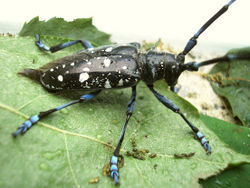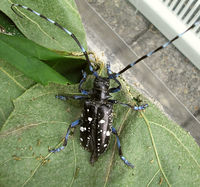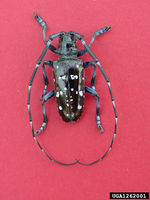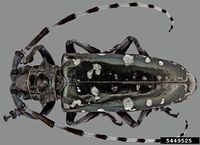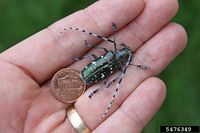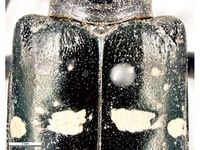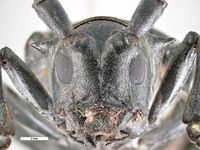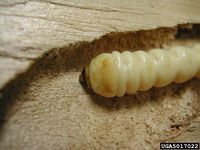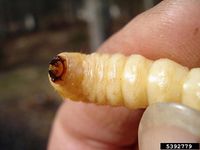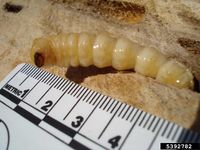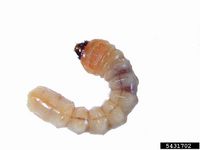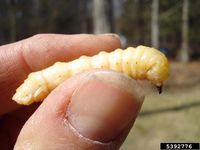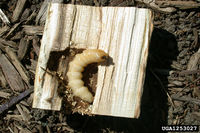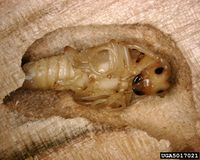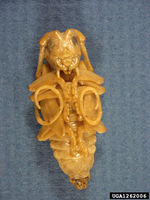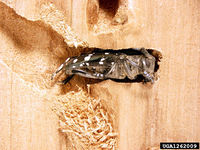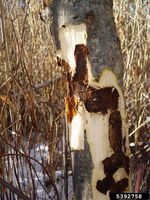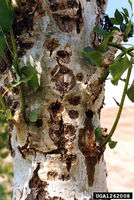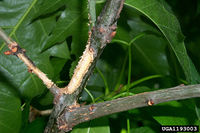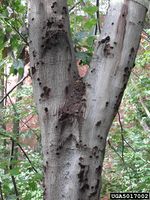Difference between revisions of "Anoplophora glabripennis"
| Line 10: | Line 10: | ||
}} | }} | ||
For details see the respective page in [[wikipedia:Asian long-horned beetle|Wikipedia]]. | For details see the respective page in [[wikipedia:Asian long-horned beetle|Wikipedia]]. | ||
| − | |||
| − | |||
<gallery widths=200px caption="Other images of Anoplophora glabripennis (Wikimedia Commons, IPM Images and PaDIL - click to enlarge)"> | <gallery widths=200px caption="Other images of Anoplophora glabripennis (Wikimedia Commons, IPM Images and PaDIL - click to enlarge)"> | ||
Revision as of 18:59, 17 March 2014
Taxonomic position
|
|---|
| Literature database |
|---|
| 200 articles sorted by: |
| • year (recent ones first) |
| • research topics |
| • countries/regions |
| • host plants |
| • list of natural enemies |
Anoplophora glabripennis (Motschulsky, 1854) - (Asian longhorn beetle)
is a serious pest of poplar in Asia. It was discovered in 1996 in North America where it attacks mainly maple. It also attacks a variety of other deciduous trees and can kill the infested trees. Since 2001 it is recorded from Central Europe and eradication efforts are ongoing in several countries. Dispersal is apparently mainly through the transport of infested wood containing larvae. The beetle does not fly readily over long distances. The adults feed on suckers and the bark of young shoots. The young larvae infests the cambium while the older larvae attack the heartwood and once mature pupate just under the bark. The life cycle from egg to mature adult lasts 1-2 years and the larvae or pupae may overwinter. The adult has a 3-4 cm long body and antennae which may be double as long. It is black with white spots. Parts of the antennae and legs are blue. See also the closely related Anoplophora chinensis.
| Vernacular names | |
|---|---|
| • Deutsch: | Asiatischer Laubholzbockkäfer |
| • English: | Asian longhorn beetle poplar longhorn beetle |
| • Français: | longicorne asiatique |
For details see the respective page in Wikipedia.
- Other images of Anoplophora glabripennis (Wikimedia Commons, IPM Images and PaDIL - click to enlarge)
